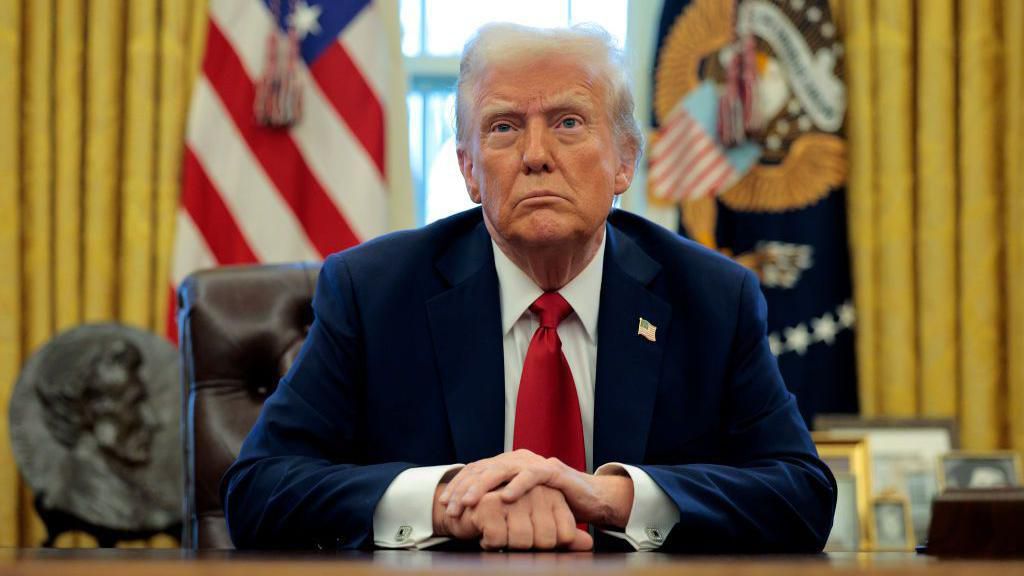Trump Announces Broader Travel Ban and Restrictions Affecting 19 Countries

US President Donald Trump has signed a new executive order instituting a travel ban on nationals from 12 countries, citing national security risks. Additionally, citizens from seven other countries will face partial travel restrictions. The White House announced that the list of countries could be revised if \"material improvements\" were made by the affected nations, and additional countries could be added if new \"threats emerge around the world.\" This marks the second instance of President Trump ordering a travel ban, with the first occurring in 2017 during his initial term in office.
The proclamation fully bans travel to the US for nationals of the following 12 countries: Afghanistan, Myanmar, Chad, Congo-Brazzaville, Equatorial Guinea, Eritrea, Haiti, Iran, Libya, Somalia, Sudan, and Yemen. Individuals from these nations will not be permitted entry into the US unless they qualify for specific exceptions. Furthermore, seven additional countries face partial travel restrictions, meaning their nationals will be unable to travel to the US using certain types of visas. These countries are Burundi, Cuba, Laos, Sierra Leone, Togo, Turkmenistan, and Venezuela. The ban is set to take effect on Monday at 12:01 a.m. (05:01 BST), a scheduling decision intended to avoid the airport chaos that occurred when a similar measure was implemented with little notice eight years prior. No specific end date for the ban has been provided; however, the order mandates periodic reviews.
The White House justified the new measures as \"common sense restrictions\" designed to \"protect Americans from dangerous foreign actors.\" In a video message, President Trump referenced a recent alleged terror attack in Boulder, Colorado, suggesting it \"underscored the extreme dangers\" posed by improperly vetted foreign nationals. Notably, the individual accused in the Colorado incident was identified as an Egyptian national, and Egypt is not included in the travel ban list. President Trump is known to have close ties with Egyptian President Abdel Fattah al-Sisi. The proclamation also stated that many of the listed countries have a \"historic failure to accept back their removable nationals\" from the US and have \"taken advantage\" of the US visa system. It further added that nationals from certain countries \"pose significant risks\" of overstaying their visas. The list of countries was reportedly compiled following a January 20 executive order requiring a report on \"hostile attitudes\" toward the U.S. and associated national security risks. Reports indicate that ten of the 19 countries affected by the bans and restrictions are in Africa, and some, like Sierra Leone, Togo, and Equatorial Guinea, are not widely known for hosting armed groups that pose a major threat to Western nations.
Regarding the US government's State Sponsors of Terrorism list, only two of the 19 countries under the new travel measures are included: Iran, which faces a full ban, and Cuba, which is subject to partial restrictions. Nevertheless, national security has been cited as a primary reason for the selection of these countries.
Several exemptions to the travel ban have been outlined. Individuals who may still be eligible to enter the US include: athletes travelling for major sporting events such as the 2026 World Cup or the 2028 Olympics; holders of \"immigrant visas for ethnic and religious minorities facing persecution in Iran\"; Afghan nationals holding Special Immigrant Visas; any \"lawful permanent resident\" of the US; and dual nationals who possess citizenship in a country not included in the travel ban. Moreover, the Secretary of State has the authority to grant exemptions on a \"case-by-case\" basis if an individual's entry is deemed to \"serve a United States national interest.\"
This recent travel ban echoes a similar executive order President Trump issued during his first term in January 2017. The original ban initially targeted seven predominantly Muslim countries: Iraq, Syria, Iran, Sudan, Libya, Somalia, and Yemen. This order was widely criticized and often referred to as a \"Muslim ban.\" It faced immediate legal challenges across the United States. The White House subsequently revised the policy, eventually adding two non-Muslim majority countries, North Korea and Venezuela. The Supreme Court upheld this revised travel ban in 2018. President Joe Biden later repealed this ban in 2021, describing it as \"a stain on our national conscience.\"
The announcement of the new travel ban has elicited strong reactions both domestically and internationally, and it is anticipated to face legal challenges. The Somali ambassador to the US, Dahir Hassan Abdi, stated that Somalia \"values its longstanding relationship\" with America and promised to work with the United States to address any security concerns. In contrast, Venezuela's Interior Minister Diosdado Cabello warned that \"being in the United States is a great risk for anyone, not just for Venezuelans.\" Democratic lawmakers in the US were quick to condemn the measure. Congresswoman Pramila Jayapal described the ban as an expansion of \"Trump's Muslim ban in his first term\" that \"will only further isolate us on the world stage.\" Congressman Don Beyer accused Trump of betraying the ideals of the US founders. Human rights organizations have also voiced strong criticism. Amnesty International USA labeled the ban as \"discriminatory, racist, and downright cruel,\" while Human Rights First called it \"yet another anti-immigrant and punitive action taken\" by the president.










